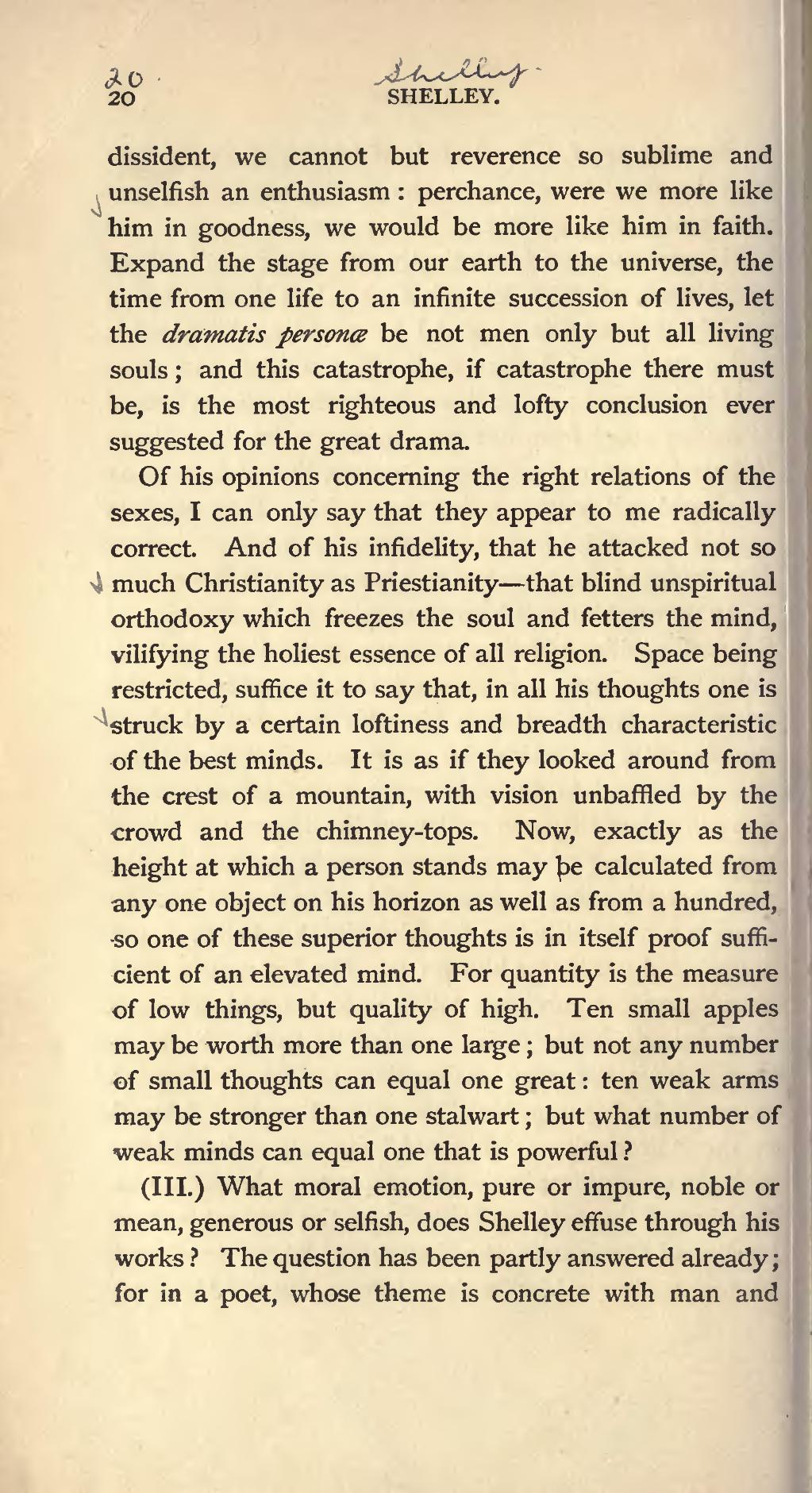dissident, we cannot but reverence so sublime and unselfish an enthusiasm: perchance, were we more like him in goodness, we would be more like him in faith. Expand the stage from our earth to the universe, the time from one life to an infinite succession of lives, let the dramatis personæ be not men only but all living souls; and this catastrophe, if catastrophe there must be, is the most righteous and lofty conclusion ever suggested for the great drama.
Of his opinions concerning the right relations of the sexes, I can only say that they appear to me radically correct. And of his infidelity, that he attacked not so much Christianity as Priestianity—that blind unspiritual orthodoxy which freezes the soul and fetters the mind, vilifying the holiest essence of all religion. Space being restricted, suffice it to say that, in all his thoughts one is struck by a certain loftiness and breadth characteristic of the best minds. It is as if they looked around from the crest of a mountain, with vision unbaffled by the crowd and the chimney-tops. Now, exactly as the height at which a person stands may be calculated from any one object on his horizon as well as from a hundred, so one of these superior thoughts is in itself proof sufficient of an elevated mind. For quantity is the measure of low things, but quality of high. Ten small apples may be worth more than one large; but not any number of small thoughts can equal one great: ten weak arms may be stronger than one stalwart; but what number of weak minds can equal one that is powerful?
(III.) What moral emotion, pure or impure, noble or mean, generous or selfish, does Shelley effuse through his works? The question has been partly answered already; for in a poet, whose theme is concrete with man and
